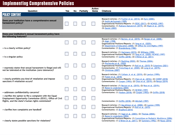Ethics of Diversity
Fortifying Ethical Infrastructure to Prevent and Address Sexual Harassment in STEM Research & Practice Settings
Project Tools and Materials
|
|
 Diversity, Ethics and Engineering Diversity, Ethics and EngineeringTeaching Module (PowerPoint Download) |
 Ethics and Engineering: Ethics and Engineering:Gender Discrimination & Sexual Harassment Teaching Module (PowerPoint Download) |
Principal Investigator |
Co-Principal |
Investigators |
|
|
Professor of Law & Director, Program for the Advancement of Legal Ethics School of Law |
Professor & Coordinator of the Women's and Gender Studies Program Department of Sociology College of Arts & Sciences |
Professor of Philosophy, Sue and Harry Bovay Chair of History and Ethics of Professional Engineering Department of Philosophy College of Arts & Sciences |
Professor of Mechanical Engineering Department of Mechanical Engineering College of Engineering |




